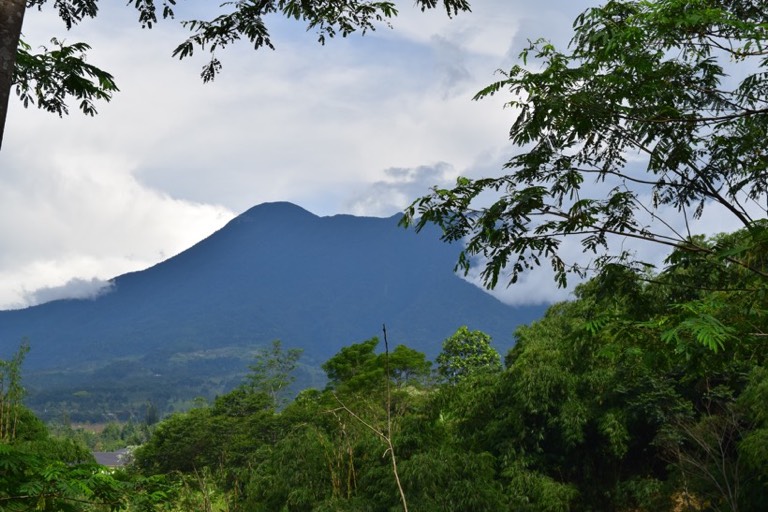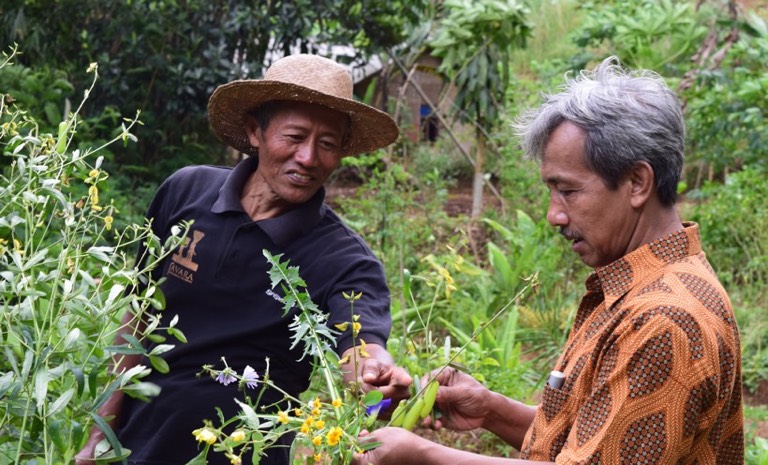Javara, Indonesia
Encompassing over 17,000 islands, according to Fauna & Flora International the Indonesian archipelago enjoys some of the richest biodiversity in the world. With over 260 million people, Indonesia is the world’s fourth largest country in terms of population (Worldometers) and is one of the world’s largest exporters of commodities such as steam coal and gold (OECD, 2015). The country is especially rich in agricultural resources including rice, coffee, and cacao (Kopernik, 2016). Indonesia contains over 55 million hectares of agricultural land employing over 40 million people providing agricultural commodities for domestic consumption and export (Asian Development Bank (ADB), 2015).
Despite these resources, productivity in the agricultural industry remains low (OECD, 2015), primarily because it is dominated by smallholder farmers who cultivate more than 90 percent of Indonesia’s crops (McKinsey & Company, 2012). These farmers are also among the country’s poorest – three out of five Indonesians are engaged in agriculture subsistence and they are twice as likely to be living below the poverty line compared to those working in other sectors (IFAD, 2015). Increasing smallholder farmers’ productivity could help them add value to their products, moving from subsistence farming to farming as a business, which could improve their livelihoods (ADB, 2015).
Lack of access to technology, fertilizers, and training (Jakarta Post, 2017), along with deforestation (The Economist, 2016) and logistical challenges due to the country’s topography (McKinsey & Company, 2012), are some reasons why smallholder farmers in Indonesia have been unable to move out of poverty. One entrepreneur, Mrs. Helianti Hilman, started a company aiming to help smallholder farmers overcome these issues with the help of the intellectual property (IP) system.
Research and development
Studies have shown that many Indonesian smallholder farmers are moving away from cultivating traditional crops, such as grains and spices, and moving toward more profitable crops, such as oil palm and rubber (Mongabay, 2016). Per Mrs. Hilman, this migration not only harms the environment through deforestation but also results in the loss of many traditional Indonesian agricultural products.
When Mrs. Hilman decided to launch Javara, a small and medium-sized enterprise (SME) based in Jakarta, in 2009, she set out to run a profitable company with two goals: first, to save traditional Indonesian agricultural products such as rice, coconut oil, and artisan salts and spices from extinction through bringing them to more markets; and second, to address the problems smallholder farmers face in the country by increasing their income. “The name Javara means champion, and we chose this name because we want to be the champion of traditional products in Indonesia and of smallholder farmers, helping them sustain and improve their livelihoods,” said Mrs. Hilman in an interview with WIPO.

Partnerships
At the core of Javara’s business model is the company’s partnerships with Indonesian smallholder farmers. “Throughout Indonesia we work with over 50,000 farmers,” says Mrs. Hilman. “The farmers’ products help keep alive Indonesia’s food biodiversity, and Javara helps sustain and improve their livelihoods.” According to Javara, in addition to an undisclosed agreed-upon percentage of sales, farmers’ receive a number of benefits through their partnership with the company, including sale of their products under a recognized brand (Javara); training and new equipment for sustainable farming techniques; and use of Javara’s logistical network, which helps farmers reach new markets.
Another unique partnership benefit is product traceability. “Javara’s strength is in the origin of the product, so we include the story of our farmers and their products on the packaging,” said Mrs. Hilman. Traceability helps certain farmers build their own brand, especially for those using traditional knowledge, such as sea salt from the fishing villages of Amed, Bali, or cashews from Eastern Flores Island. “Many of our products come with this type of dual branding, which helps such farmers become food entrepreneurs,” says Mrs. Hilman.
Mrs. Hilman says that because of their efforts farmer partners are getting younger, helping to curb the loss of farmers and traditional Indonesian agricultural products. “When I started the company most of our partner farmers were above 65. Today, many of our partners are in their 20s,” she said.
Trademarks and branding
For Javara, trademarks and branding are essential to their success. “Any business, whether it is products or services, needs a brand. Your brand brings your company philosophy, product quality, and image together, enabling your customers to relate to your brand. To keep this integration, you need to have your brand registered as a trademark,” says Mrs. Hilman.
Without trademarks and branding, Mrs. Hilman believes a company will find it difficult to make any headway in the market. “In the beginning, we sold all our products in bulk to other companies who then sold our products under their brand. We had a product but no brand, and without this we had no representation to our customers that the quality and added value was delivered by us,” she said.
Following this early foray into bulk production, Javara successfully changed its approach to use the company’s name as an umbrella brand for products from its smallholder farmer partners. “Without branding and registered trademarks you cannot add value to your products or be competitive,” says Mrs. Hilman.
As of early 2017, Javara had two registered trademarks in Indonesia – one for the company’s name and another for the Javara logo. Because most of Javara’s products are exported, the company is looking forward to eventually being able to make use of the Madrid system. “I think the Madrid system is very beneficial because it simplifies the different trademark registration processes for all Madrid system Member States. This is very helpful for an SME like us, because it greatly simplifies the international trademark registration process.”

Commercialization and business results
Javara started out commercializing a range of traditional Indonesian agricultural products, from artisan sea salt to noodles, for sale in bulk to the domestic market. However, the company found little demand making it challenging to becoming a profitable business. “It was difficult to sell our products domestically and our partner farmers became impatient because they were not seeing commercial benefits,” said Mrs. Hilman.
Once Javara transformed from a bulk supplier to developing its own brand, registering trademarks, and focusing on exports in 2011, things quickly improved as the company found greater demand coming from the export market. “Today, approximately 80% of our products are made for export, mostly to the European Union (EU) and USA, but also to Japan, Australia, and South America,” said Mrs. Hilman. By 2016 the company sold over 740 products from its partner farmers, over 200 of which are certified organic products for the USA, the EU, and Japan.
Focusing on building a brand and targeting export markets was key to Javara’s commercial success. “It is amazing to see how the export market has responded to our brand,” said Mrs. Hilman. “We have grown significantly since we entered the export market in 2011, nearly doubling our annual revenue since. This has also helped us grow domestically, where we have seen an annual growth rate of up to 25%,” she said.
Javara’s success also brings success for its partner farmers. Speaking to WIPO in an interview, Mr. Paysan, a Javara partner farmer, shared his experience. “Javara has taught me about new organic farming techniques to produce products that have a high added value,” he said. “I can sell my products knowing that the Javara brand guarantees a high level of quality and will also reach export markets. This has significantly increased my income and that of other Javara partner farmers, helping us improve our livelihood,” he said.
IP as a tool for smallholder farmers
Indonesia is growing rapidly, with some estimates placing the country as the 7th largest economy by 2030. The agricultural sector plays an important role in the country’s economy and continues to evolve, with smallholder farmers facing new challenges as the sector grows. Javara is one company that believes in doing its part to save traditional agricultural products while helping smallholder farmers move beyond subsistence farming to overcome new challenges using new tools, one of which is the IP system.

Source: WIPO

 Client Focus
Client Focus